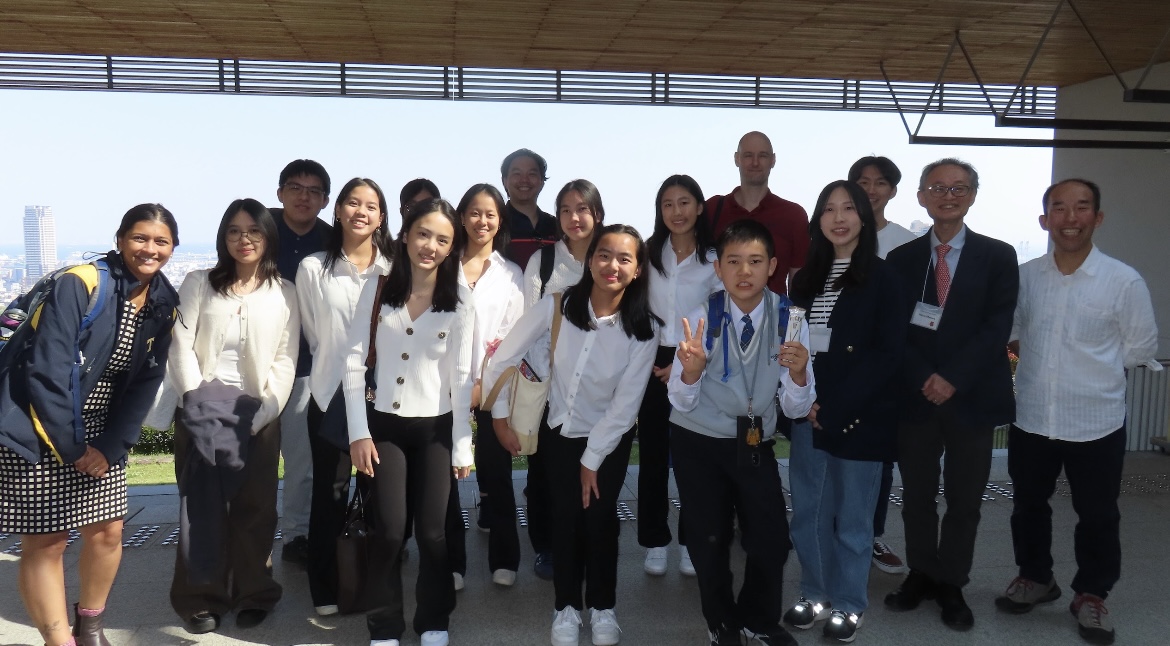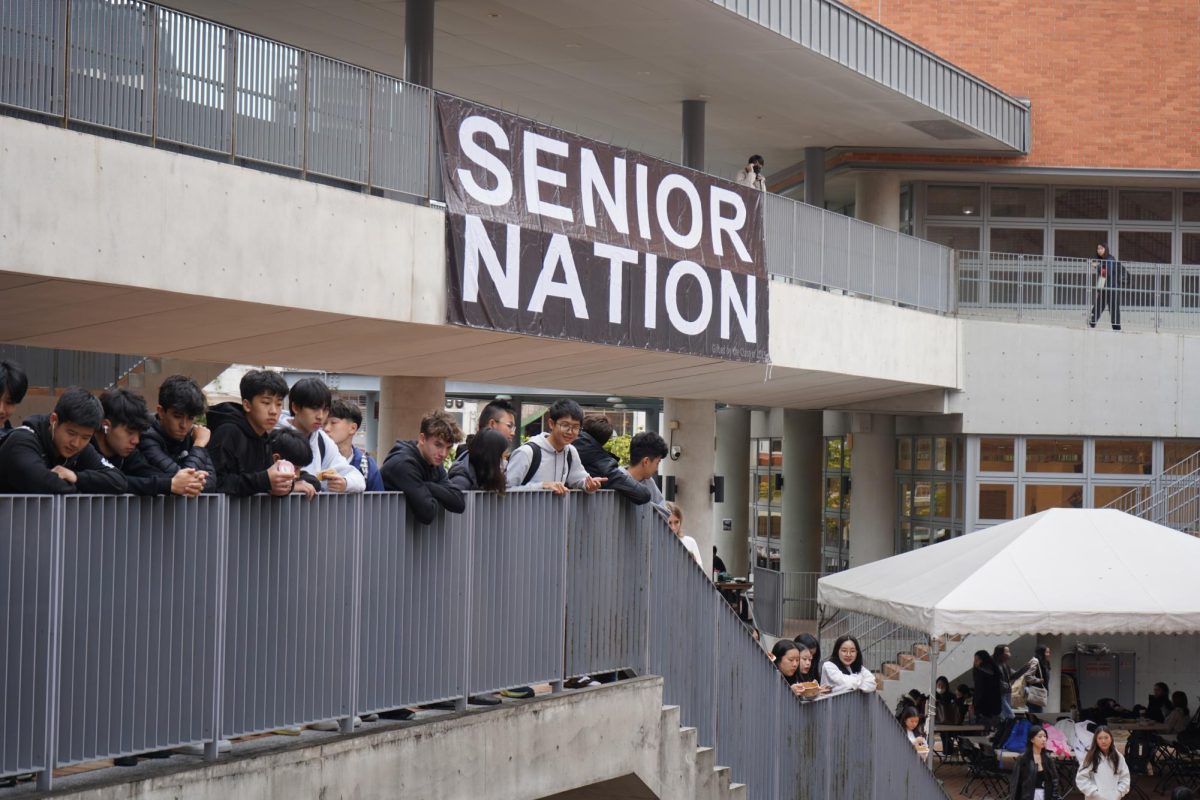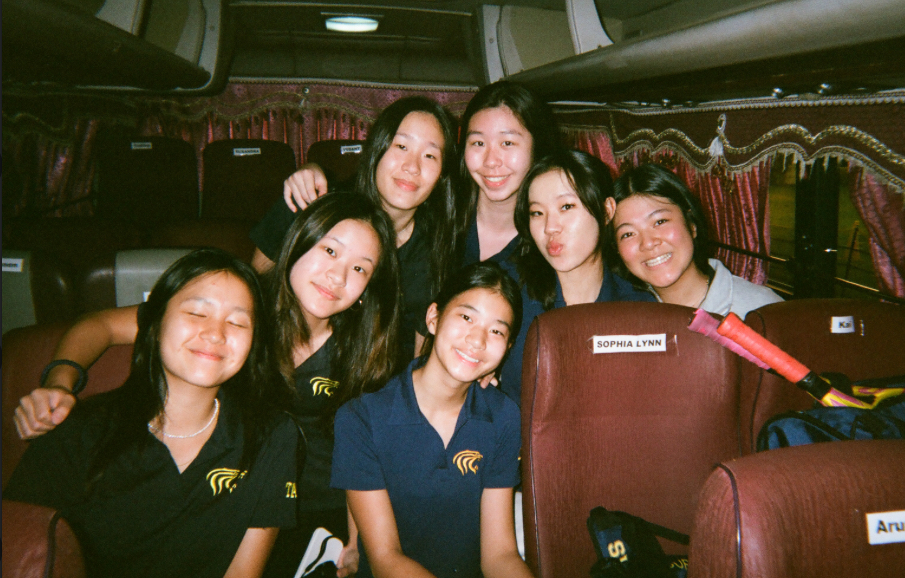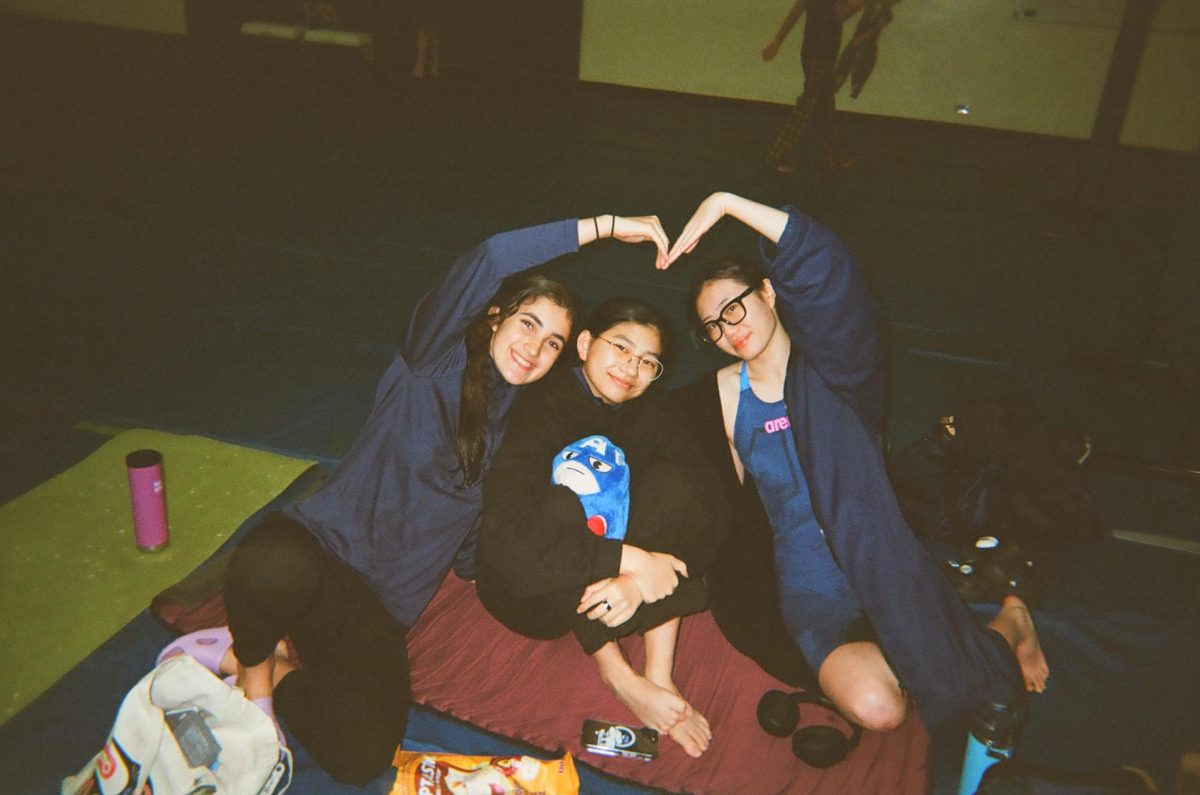Starting early in the school year, TAS’ International Public Policy Forum (IPPF) team wrote and submitted their qualification essay, in which they could choose either to affirm or oppose an official resolution. The team, composed of Aaron Gould (12), Alan Tsai (12), Cherice Tsai (12), Jeremiah Hsu (12), Katie Fong (12), Paul Imbrogulio (12), qualified and was selected to enter the “Round of 64,” where teams are paired up and debate against each other. HOW MANY TEAMS SUBMITTED AND THEN WERE CHOSEN? The TAS IPPF team won in both the rounds of 64 and 32 and advanced to the Sweet Sixteen. Currently the team is waiting for results for entering the “Elite 8.” The teams that make it to the “Elite 8” get to travel to New York, New York to compete in a spoken debate on the same issues.
According to senior team member, Cherice Tsai, “each debate consists of four papers: Affirmative Constructive, Negative Constructive, Affirmative Rebuttal, Negative Rebuttal.” Each Constructive essay is approximately 2800 words and the rebuttal essays are written in a similar process. When the Affirmative finishes their essay, it is sent to the Negative so that they can write their rebuttal essay. There is one week between each of the competition essays; in total, each round of debate takes approximately a month.
This year’s topic is about the refugee crisis: Resolved: The obligation to provide safe haven for refugees should outweigh a government’s right to control its borders. Cherice explains that “the debate is centered around which, between border control and obligation to provide safe haven, takes precedence given considerations for national security, global welfare, ethics, international law, and social, economic and political interests of countries.”
Collaborating on an essay can be “a little messy with six people all working on one document at once,” comments Paul Imbrogulio (12), “but since we have been doing this for three years, we are normally good at dividing workloads so they overlap less”. The TAS team generally assigns three to four writers to work on different arguments. One person is responsible for editing and fixing grammar, another one to two people in charge of fact checking and research. One of the struggles in writing one collaborative essay is maintaining one single voice throughout. “Even though everyone has different tones and styles when writing, we always come back together towards the end to make sure our team has a single voice [in the essay] before it’s submitted,” says Paul. “Dr. Nelson is also hugely helpful in the process: he tirelessly offers us feedback for each of the essays we write,” adds Cherice.
“The lion’s share of the work lies in getting our point across within [the word limit of 2800],” says Katie Fong (12). Paul reveals that their essay’s first draft is usually around 5000 words or more. “Sometimes cutting down our arguments is harder than actually writing them in the first place,” remarks Paul. “Word economizing and being concise” is always difficult when writing,” states Cherice. Katie agrees and adds that “trying to hit a word limit when you already feel like there is nothing more to be cut is like chopping off a limb.”
Katie elaborates that while she does not “look forward to editing [the] essay once a first draft [is] made, she does look forward to their work sessions that “are basically just alternating blocks of silent, frenzied typing and short bursts of joking around”. Paul concurs, “I look forward to hanging with Dr. Nelson and my teammates, [arguing] over which cuisine is the best or just talk about existential questions”. “For our rebuttal essays, we back check our opponent’s sources. We check that the other side’s source actually support what they claim those sources do. A lot of the times, we find that the other side’s sources conclude in opposition to their case, or they use quotes from sources but place them out of context to misconstrue an author’s argument. We point out these inconsistencies in our essays, and take advantage of this to argue in favor of our side,” says Cherice. Despite their strong argumentative skills, “our weakness would have to be spelling words like trafficking [or] using fake words like thalassic,” states Paul. Katie rebuts that “thalassic is a word. Stop roasting me for using fancy words. They make our essays sound smarter and this is literally just how I talk.”
Best of luck to the TAS IPPF team, the last time they went to New York was 3 years ago.




![[PHOTO COURTESY OF PIXABAY]](https://blueandgoldonline.org/wp-content/uploads/2025/03/white-18227_1280-1200x803.jpg)

![[PHOTO COURTESY OF PIXABAY]](https://blueandgoldonline.org/wp-content/uploads/2025/03/fire-6706674_1280-1200x800.jpg)
